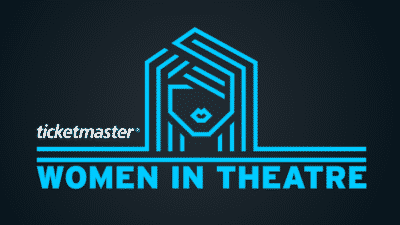Music
Women In Tech: challenges, opportunities and the future
Last week we hosted an event in our office pub entitled ‘Women In Tech: challenges, opportunities and the future’. Moderated by our very own SVP Technology, Gerry McDonnell, the evening played host to a panel of three women in the tech world who were able to share their experiences of working within what is seen, typically, as a much more male dominated industry. We welcomed Simone Babb, International Development Management Consultant at Atos, Angela Single, Clinical Director at BT Global Health and Sandra Greenhalgh, Developer in Test here at Ticketmaster.
To find out more about what was said, take a look at our summary below and to get involved in more events like this in the future keep an eye on our social channels.
Gerry McDonnell (GM): Technology jobs have been viewed by women as being populated by men in basements, working alone, as a human extension of the computer. Even Marissa Meyer, CEO of Yahoo!, once stated that: “when people think about computer science, they imagine people with pocket protectors and thick glasses who code all night”. What are the perceptions of working in tech and women working in tech? How does this compare to the reality?
Simone Babb (SB): My work experience is primarily in the US and my experience there has been the same as in the UK – this stereotype of how it is to work in tech, stuck behind a screen all day every day, is not the case at all. Regardless of gender, we’re part of a team, we work closely together.
Sandra Greenhalgh (SG): I work in ‘deep tech’ writing code and even there this is definitely not the case! We spend a lot of time chatting together, discussing problems and creating solutions. Bouncing ideas off one another is central to our work. This is one of main reasons I think it is really important to have a male/female balance within any team, as different people bring different perspectives. I’ve always been welcomed into male-dominated teams and it has never mattered that I am a girl; all that matters is that I do a good job.
GM: Do these incorrect perceptions affect the way that young girls view jobs in the tech world?
Angela Single (AS): I think so, absolutely. When children were young technology was not seen as a viable profession, it wasn’t really given as an option. There needs to be a change within our education system so that technology is brought to the forefront. If you think about it, there are a lot of teachers that are slightly older, female who work in primary schools who themselves are not computer literate. We need a change so that the people who are teaching the next generation understand the power of technology.
SB: It has a lot to do with confidence. Girls often lack self-confidence when they are learning; there has always been this perception of the computer science geeks who have “pocket protectors and thick glasses”. Clever isn’t always cool within schools – this is not how it should be. To be part of an all-male team and to push yourself to work in a tough industry like tech you need to have self-confidence. We need to empower girls to feel that they can do this, because they can.
GM: Some recent stats are alarming – Google have said that only 17% of tech roles are being occupied by women. Twitter’s recent diversity report revealed that only 30% of its employees globally are women. Furthermore, only 10% of its tech roles are filled by women. The situation is similar at Facebook, where women constitute 31% of its overall employees, and only 15% of its tech employees. What do we think are the current blockers and challenges for women pursuing a career or working in tech?
AS: There is a lack of supply of women who are qualified in specific technology, like coding. However, the value that women often bring to the table is their subject expertise. For me, I come from a nursing background. I have brought my real life experience within this field to a technology team who focuses on healthcare to help them understand how they can improve their products to work for the people who will ultimately use them. Homogenous teams do not work; you need a balance of people to get the most out of your work. There is a wealth of research that proves this. For example, one paper that suggests that female-led start-ups make 35% higher ROI in the first 12 months as compared to those led by their male counterparts.
SG: The blockers start much earlier in the journey, the geek perception that we have been discussing is what holds girls back in their formative years.
GM: Agreed, but we need to start realising that smart is cool. Computing for a long time has not been part of the curriculum. Fortunately, UK schools are now taking it more seriously and it is being taught as part of the core subjects. However, the delay in this teaching has meant a lack of supply of women for these tech roles.
AS: One way of tackling this is to realise that internships do not need to be for people who have just graduated, or finished school. Apprenticeships for the 50+ demographic are now a viable option to bridge this knowledge gap in the older demographic. These schemes enable people to bring their real-life experience and expertise into a business while teaching them new skills to allow them to use and work with technology.
GM: IT started out with a lot of women involved. In the 80s there was a good balance of males/females and now it has really dropped off. What are the opportunities for women in technology in this day and age? What has changed over time?
SB: There are still women in the tech world but there has been a definite shift from women being in traditional ‘tech’ roles of developers and coders to business roles.
SG: I have found that even as a women in code, I often attend more meetings because it is easier for me to translate from ‘geek’ to ‘non-geek’ – ie. I can explain to the business in simpler terms what we are working on and how we are achieving it. This naturally pushes you into a role closer to the business, away from the tech. Also, we have to make the point that technology is an area that is moving so rapidly. Career breaks in this industry, I think, are more noticeable as by its very nature your work evolves so much month by month. It makes it harder to come back into work and pick up where you left off.
AS: This is very true. Keep-in-touch days are good but they aren’t necessarily enough. Here, it comes down to passion. If people are passionate enough about the work that they do they will keep up to date with what is happening. However, organisations definitely have a responsibility to help people learn remotely. Now that we have so many more online resources this should be easier. If people are passionate about what they do they can even continue to read and learn with a babe in arms! Tech networks are also a mine of information; coffee mornings and the like provide a good, informal way to keep up to date with the industry.
GM: Who are some celebrated examples of women working in technology? Why are they not celebrated as much as men?
SB: I definitely look to Marissa Meyer as inspiration. She is very well known.
AS: Liv Garfield. I have been reading a book which explores this subject in detail called Innovating Women: The Changing Face of Technology by Vivek Wadhwa and Farai Chideya.
SG: I really can’t think of anyone in particular. I read a lot of blog posts about tech and they are always posted by men. I think women need to start tooting their own horns, making sure they shout about the great work that they do; starting by getting involved in these forums and making sure they are part of the conversation.
GM: According to the book ‘Little Miss Geek’ by Belinda Parmar, tech companies with women on their management teams have a 34 percent higher return on investment. Why do we think that is and what can we do to recruit and nurture female talent?
AS: Research shows that people tend to hire people like themselves. There has been controversy in the past about putting quotas on the executive board, for example, ensuring that there is a certain percentage of women present. However, maybe this is a step in the right direction for making people break the mould and look away from the stereotype and to a different type of employee. You have to encourage diversity to create a balanced workplace.
SB: I still think it has to start much earlier. We need to be educating the younger generation and giving them the skills and confidence to be able to see this industry as an option. The UK education system forces people to choose their career path much earlier so we need to be making sure that we are telling young girls that the tech world is a place that they can work within. Break down these perceptions that tech is not cool, that it is full of nerdy men and that they can flourish within this environment.









